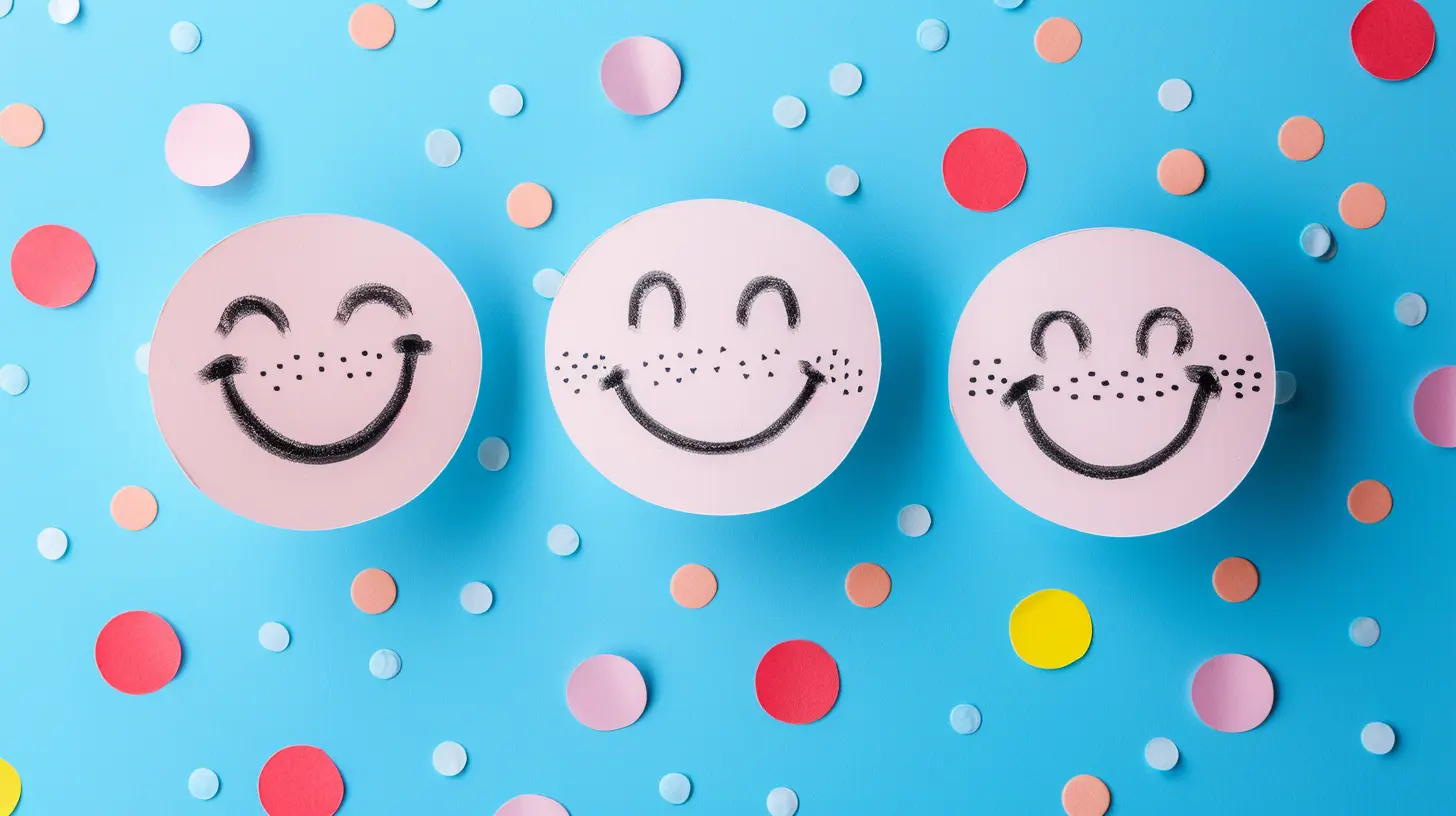How Empathy Transforms Customer Service Experiences
3 October 2025
Let’s be honest — we’ve all had those customer service experiences that left us wanting to pull our hair out. You know the ones. You’re explaining your issue for the fourth time to a new rep, getting passed around like a hot potato, and somewhere along the way, you start to wonder if you're speaking the same language.
Now, imagine this: You call customer support, and the rep actually listens. Not just nodding along or reading from a script, but really tunes in, acknowledges your frustration, and genuinely wants to help. Feels different, right? That’s empathy at work.
Empathy isn’t some cheesy buzzword tossed around in feel-good meetings—it’s the superhero of customer service. So grab your coffee (or wine, we don’t judge), and let’s chat about how empathy completely transforms customer service experiences.
What Is Empathy, Really?
Before we go any further, let’s clear something up. Empathy isn’t the same as sympathy. Sympathy sees someone in a puddle and says, “Oof, that looks rough.” Empathy? Empathy hops in there with you and says, “Wow, I see how this happened. Let’s find a way out—together.”In customer service, empathy means putting yourself in the customer’s shoes and actually feeling what they feel. It’s not just solving a problem, it’s solving it in a way that acknowledges the customer’s emotions.
Let's Look at the Not-So-Sweet Alternative
Think about the last time you talked to a customer service rep who lacked empathy. Did it sound like:> “Ma’am, our policy says we can’t…”
> “There’s nothing I can do…”
> “It’s not our fault…”
Yikes. That wall of indifference makes even small issues feel unbearable. When businesses put policy over people, customers feel ignored, undervalued, and sometimes downright insulted. And let’s be real — no one posts a 5-star review after being made to feel like an inconvenience.
The Simple Secret to Memorable Customer Service
Here’s the thing: People don’t just remember the solution; they remember the experience. Empathetic customer service turns a frustrating moment into a positive memory.When a customer feels heard and understood, they’re instantly more forgiving, even if the solution isn’t perfect. Why? Because we all just want to feel like someone gives a rip about our problem. When empathy is present, patience grows, tempers cool, and loyalty builds.
Real Talk: What Empathy Actually Looks Like in Customer Service
Let’s break down what empathy looks like in action. Picture a rep who:- Acknowledges the customer’s frustration
- Uses active listening (no interruptions or robotic replies!)
- Validates their emotions
- Adjusts their tone to match the customer’s mood
- Expresses genuine willingness to help
- Follows through on promises
Instead of saying, “That’s our policy,” try,
> “I totally understand how frustrating that must be. Let me see what I can do to make this right.”
Boom. Connection established.
Why Empathy Wins Every Time (Even with Angry Customers)
Angry customers are not the enemy—they're emotional barometers. And more often than not, they lash out because they feel dismissed or misunderstood. The cure? Yep, you guessed it—empathy.It flips the script. When you meet anger with understanding instead of defensiveness, people soften. It’s like emotional judo. You don’t push back; you flow with it and use it to build trust rather than break it.
Here’s the magic formula:
😡 Anger + 😌 Empathy = 😇 Loyalty
The Business Case for Empathy (Yes, It’s Profitable!)
Let’s talk numbers for a second (don’t worry, we’ll keep it light).Businesses that prioritize empathy in their customer service see:
- 🚀 Increased customer satisfaction
- 💸 Higher customer retention rates
- 📣 More word-of-mouth referrals
- ⭐️ Better online reviews
- 📈 Boosted revenue
Basically, empathy isn’t just warm and fuzzy—it’s cold hard business sense.
Think about it: If it takes 5 times the money to acquire a new customer than to keep an old one happy, why wouldn’t you want to create an experience people want to come back to? Empathy greases the wheels of loyalty.
Empathy Is a Culture, Not a Script
Let’s have a heart-to-heart: You can’t fake empathy. Customers can smell scripted “I understand how you feel” lines from a mile away.Real empathy? It's in the tone. It’s in the reaction. It’s in the willingness to go a little beyond the job description to make something right.
Empathy has to be baked into company culture. It starts at the top and trickles down. If your team doesn’t feel valued, they won’t be motivated to value the customer either.
So, if you're a manager or business owner, ask yourself:
- Are you modeling empathy with your team?
- Are your support reps empowered to solve problems with flexibility?
- Are you hiring for emotional intelligence, not just technical skills?
Because here’s the truth bomb: Happy employees create happy customers. It's the Circle of Service Life.
Training Teams to Be Empathy Rockstars
Good news — empathy isn’t just for the naturally warm and fuzzy types. It’s a skill, and like any skill, it can be trained.Here’s what effective empathy training includes:
1. Role-Playing Scenarios
Think of it like customer service improv. It’s awkward at first (and sometimes hilarious), but it helps reps put themselves in real-world emotional situations.2. Emotional Intelligence Workshops
Teach your team how to recognize and respond to emotional cues. The goal isn't just solving the issue, it's understanding the person behind the problem.3. Active Listening Drills
Yes, this is a thing. And yes, it’s wildly effective. Practice paraphrasing, withholding judgment, and asking clarifying questions.4. Feedback Loops
Use customer feedback to highlight wins and areas for improvement. Celebrate empathetic responses. Make them the company gold standard.Technology with a Human Heart
Now, don’t get it twisted—we love chatbots and AI as much as the next tech geek. But tools should complement empathy, not replace it.Use automation to handle the routine stuff (checking order status, FAQs, etc.) so your human agents can focus on what they do best: building connections, solving complex problems, and throwing a little compassion into the mix.
Pro tip: Personalization is the tech twin of empathy. Use CRM tools to give reps context on each customer — their history, preferences, and past issues. That way, every interaction feels less like a cold call and more like a warm handshake.
Let's Talk About The Ripple Effect
When a customer gets treated with empathy, something special happens: they carry that good vibe forward. They’re kinder to the next customer support rep they talk to. They’re more patient with the barista who messes up their latte. They brag about your company to that coworker who’s always asking for recommendations.Empathy is contagious. One kind interaction can ripple outward in ways you’ll never even see.
A Few Stand-Out Examples of Empathy in Action
Need some inspiration? Here are a few companies rocking the empathy game:- Zappos: Their reps are famous for marathon support calls. Why? Because they’re encouraged to connect, not just complete tickets.
- Ritz-Carlton: Empower their staff to spend up to $2,000 to make a guest happy. That’s empathy with muscle.
- Spotify: Their support team tweets with empathy, humor, and even the occasional emoji. Humans, not robots.
Notice a trend? These companies are thriving — and it’s not just because of great products.
Empathy Isn't Extra — It's Essential
Here’s the mic-drop moment: Empathy isn’t a “nice-to-have” accessory. It’s a must-have, can’t-live-without-it foundation of great customer service.In a world where people are bombarded with options, fast shipping, and flashy apps...what really stands out is how your company makes them feel. And empathy? That’s your secret weapon.
Wrapping It Up (With a Friendly Hug)
If customer service were a party, empathy would be the glue keeping everyone from flipping the snack table. It smooths the bumps, warms the cold exchanges, and turns complaints into compliments.So the next time a customer comes in hot, remember — behind that frustration is a human being looking for connection. Listen, understand, and respond like you actually care — because guess what? That’s what people remember. That’s what people come back for.
And that, my friend, is how empathy transforms customer service experiences.
all images in this post were generated using AI tools
Category:
Customer ServiceAuthor:

Lily Pacheco
Discussion
rate this article
1 comments
Cambria Wilson
Empathy truly elevates customer service, fostering deeper connections and understanding. By prioritizing customers' feelings, businesses can enhance satisfaction and loyalty, leading to lasting success.
October 20, 2025 at 5:06 AM

Lily Pacheco
Thank you for your insightful comment! I completely agree—empathy is indeed a powerful tool that can transform customer relationships and drive long-term loyalty.


